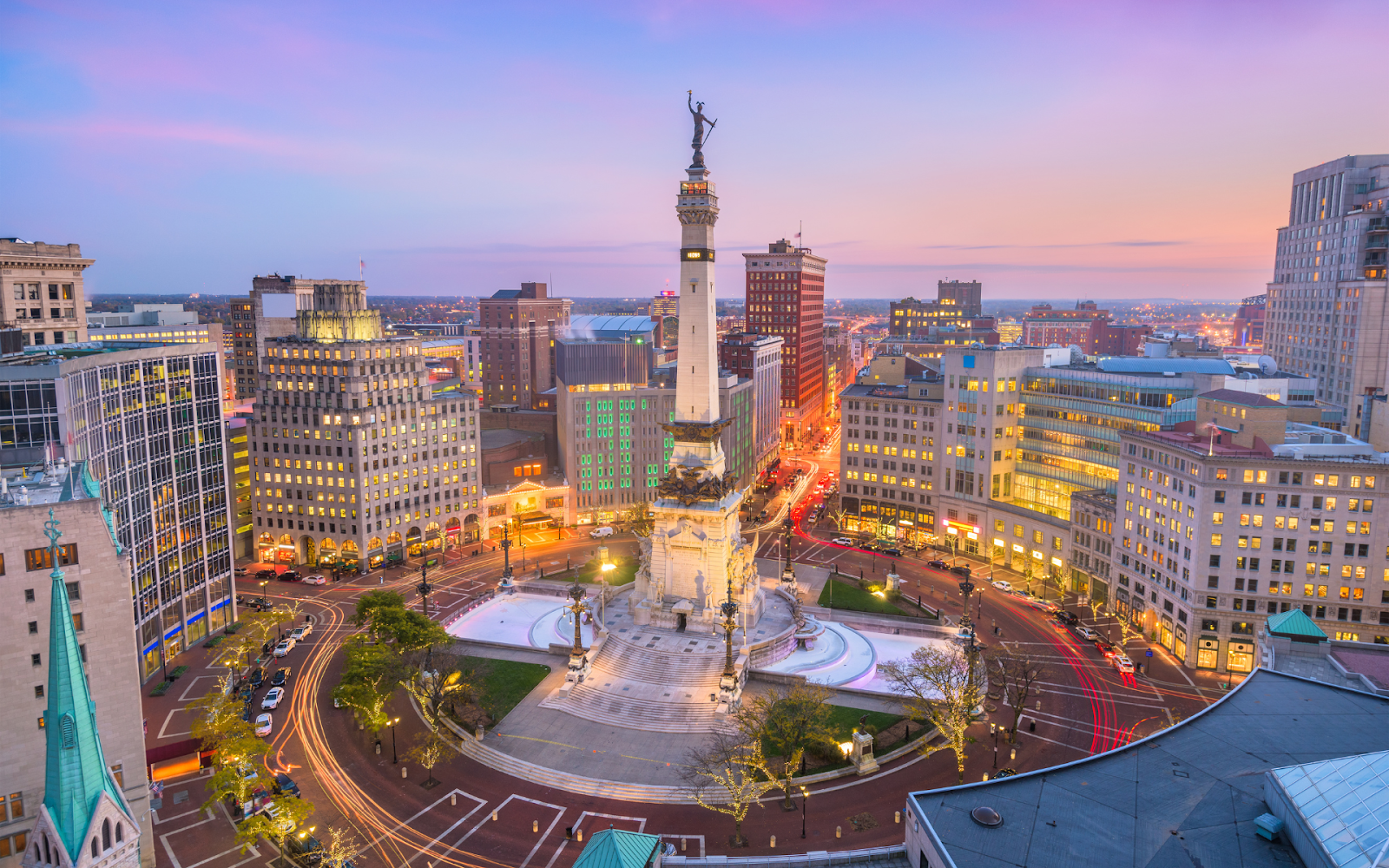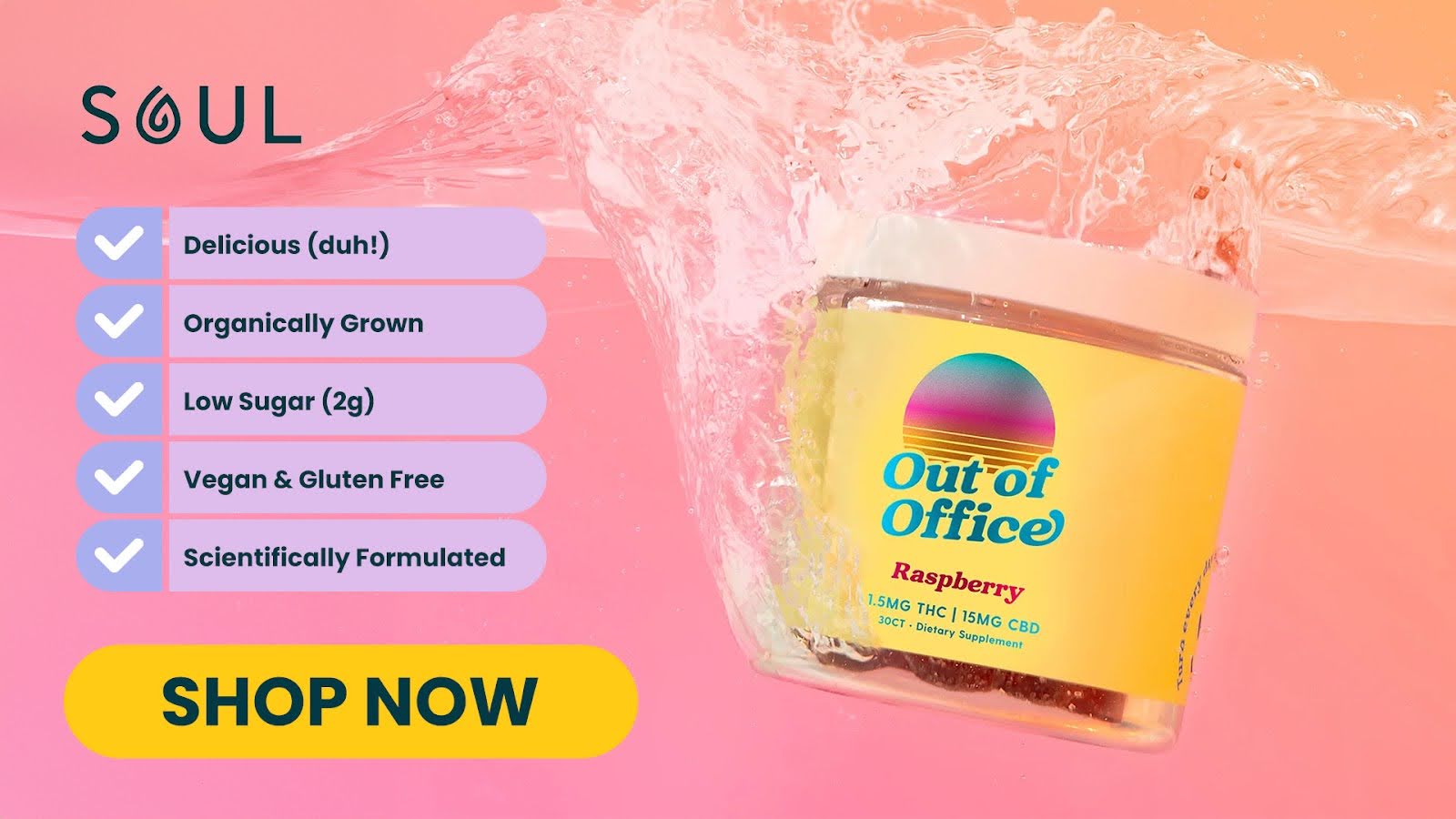
Key Takeaways:
- Strict Regulations: Indiana maintains strict laws against THC, allowing only CBD oil with less than 0.3% THC.
- Severe Penalties: Penalties for THC possession in Indiana can be harsh, ranging from fines to imprisonment, depending on the quantity and prior offenses.
- Legal Alternatives Available: Legal alternatives like CBD oil and Delta-8 THC are available within specific legal limits to provide relief without psychoactive effects.
Soul, a top supplier of high-grade, lab-tested THC products, guarantees the best standards of quality and adherence to all local, state, and federal laws. Our dedication to quality and in-depth knowledge of cannabis regulations establish us as a reliable resource for information and premium goods.
The legal status of THC in Indiana will be discussed in this article, along with the complex rules that control its usage, possession, and the consequences of breaking the law. We will also go over the distinctions between THC use for medical and recreational purposes, list the existing legal THC substitutes that the state offers, and offer our predictions for THC legislation going forward. Come along as we help you stay informed and compliant by navigating the nuances of Indiana's THC laws and providing advice.
Understanding The Difference Between Medical And Recreational Use
In Indiana, the distinction between medical and recreational use of THC is critical in understanding the legal landscape. Currently, Indiana does not permit the recreational use of Hemp or its derivatives, including THC. However, the state has specific regulations concerning medical cannabis, particularly the use of CBD oil with low THC content.
Medical use:
- CBD Oil: Indiana allows the use of cannabidiol (CBD) oil that contains less than 0.3% THC, primarily for therapeutic purposes. This product is legal under state law and can be used to treat various conditions as prescribed by a healthcare provider.
Recreational use:
- Prohibition: Indiana maintains a strict ban on recreational Hemp. Possession, sale, and use of Hemp for non-medical purposes are illegal and can lead to significant legal consequences.
This distinction highlights the state's conservative approach towards THC and emphasizes the legal implications for those who may consider its use outside prescribed medical guidelines.
Current Laws Governing THC In Indiana
Indiana maintains a firm legal framework regarding THC, emphasizing strict regulation across various forms of cannabis and cannabis-derived products. Here are more detailed insights into the key aspects of the legislation:
CBD Products
These are legal in Indiana but must strictly contain less than 0.3% THC. This regulation aligns with federal guidelines for hemp-derived products, allowing for the sale and use of CBD oils, lotions, and other items primarily aimed at providing therapeutic benefits without inducing a high.
Hemp-derived Products
Post the 2018 federal Farm Bill, Indiana adapted its laws to permit the cultivation, production, and use of hemp products that adhere to the THC threshold of less than 0.3%. This law supports agricultural advancements and commercial sales of hemp-based goods, ranging from fibers and textiles to seeds and extracts.
Synthetic Cannabinoids
In Indiana, synthetic cannabinoids such as Spice or K2 are categorized as illegal substances. These products are chemically engineered to mimic the effects of THC but often lead to severe health risks. Indiana law prohibits their manufacture, distribution, and possession to safeguard public health from these unpredictable and dangerous substances.
Zero Tolerance For Hemp
Indiana enforces a zero-tolerance policy towards Hemp that contains THC levels above the legal limit for hemp. This includes any recreational use of Hemp, which remains illegal under state law. The state prosecutes violations rigorously, reflecting its conservative stance on drug control and public safety.
Penalties For THC Possession In Indiana
In Indiana, the penalties for THC possession are structured to reflect the state's strict policy against illegal drug use, emphasizing deterrent measures and legal consequences for violations. Below are expanded details on the penalties one might face:
Small Amounts
The possession of less than 30 grams of Hemp for personal use is treated seriously in Indiana. Classified as a Class A misdemeanor, this offense can lead to up to a year in jail and fines reaching $5,000. This level of penalty is intended to discourage even minor possession, highlighting the state's conservative stance on drug control.
Larger Amounts
For those possessing more than 30 grams, especially if they have prior drug offenses, the legal repercussions become significantly harsher. This situation escalates to a Level 6 felony, with potential penalties including 6 months to 2.5 years in prison and fines up to $10,000. Such severe consequences aim to curb the distribution and chronic use of illegal drugs within the state.
Paraphernalia
Indiana also penalizes the ownership or sale of drug paraphernalia. This is considered a misdemeanor and can result in fines and jail time. The law covers items explicitly intended for drug use, such as pipes, bongs, and other items used in the consumption, production, or processing of cannabis.
Impact Of Federal Laws On Indiana's THC Regulations
Federal laws significantly influence Indiana's regulatory approach to THC, creating a complex interplay between national directives and state-specific regulations. Here’s a more detailed look at how federal legislation impacts state laws:
Controlled Substances Act
As a Schedule I drug under the Controlled Substances Act, THC is classified at the federal level along with other substances that are deemed to have a high potential for abuse and no accepted medical use in the United States. This classification heavily influences Indiana's strict policies, as the state aligns with federal guidelines that prohibit the legalization of Hemp for recreational or general medical use.
Farm Bill Of 2018
The Farm Bill of 2018 marked a significant shift in cannabis policy by legalizing hemp-derived products containing less than 0.3% THC across the United States. This legislation directly affected Indiana's laws, enabling the state to establish its own regulations for the cultivation, distribution, and sale of hemp products. Consequently, while THC-rich cannabis remains illegal, hemp-based products are legally distinct and widely available.
FDA Regulations
The Food and Drug Administration's stance on THC further complicates its status in Indiana. Since the FDA does not recognize THC as an approved drug for medical treatments, this limits how products containing THC can be marketed and prescribed within the state. These federal guidelines necessitate strict compliance from Indiana businesses in terms of product labeling, marketing, and consumer education, ensuring that THC's medicinal use remains tightly controlled.
Legal Alternatives To THC In Indiana
Indiana provides several legal alternatives to THC that offer therapeutic benefits without the associated legal risks. These alternatives cater to those seeking relief from various symptoms in a manner compliant with state laws:
CBD Oil
Available throughout Indiana, CBD oil containing less than 0.3% THC is a popular choice for those looking to gain the benefits of cannabis without the psychoactive effects. This oil is used to help with conditions like anxiety, chronic pain, and inflammation. It's a non-intoxicating alternative that aligns with both federal and state regulations, making it a safe and legal option for relief.
Delta-8 THC
Delta-8 THC occupies a legal gray area in many states, including Indiana. It is chemically different from Delta-9 THC (the primary psychoactive component in Hemp) and is noted for providing some of the same benefits as THC, such as mild euphoria, relaxation, and pain relief, but with less potency and fewer psychoactive effects. While its legality can vary, it is currently available under certain conditions in Indiana, offering an alternative for those seeking a middle ground between CBD and traditional THC products.
Kratom
Kratom is a botanical substance that comes from the leaves of the Mitragyna speciosa tree native to Southeast Asia. It is not related to cannabis but is used by some Indiana residents for similar purposes, such as pain relief and mood enhancement. Kratom's legal status is subject to local regulations and can vary, so it is important for consumers to verify the legality in their specific area within Indiana. This substance is often available in powder or capsule form and has been a subject of debate regarding its safety and regulatory status.
Future Outlook On THC Legislation In Indiana
The landscape of THC legislation in Indiana is poised for potential changes, influenced by several dynamic trends that reflect shifts in public opinion, legislative efforts, and regional developments:
Increasing Public Support
Across the United States, there's a growing liberalization in the attitudes toward Hemp, which is likely to impact Indiana as well. Surveys and polls indicate increasing public support for the legalization of Hemp, particularly for medical use. As these attitudes shift, Indiana may face mounting pressure from its constituents to reform its current THC laws, potentially leading toward more progressive policies.
Legislative Proposals
There have been several legislative attempts in recent years to decriminalize or legalize medical Hemp in Indiana. While these proposals have not yet succeeded, they highlight an ongoing dialogue within state government and among advocacy groups. Observers and stakeholders continue to monitor these developments closely, as any legislative change could significantly alter the state's legal landscape regarding cannabis.
Neighboring States' Policies
The movement towards cannabis legalization in neighboring states plays a crucial role in shaping Indiana’s legislative approach to THC. As states like Illinois and Michigan implement legal recreational cannabis markets, Indiana may reconsider its stance to address not only public sentiment but also economic considerations, such as tax revenue and cross-border traffic, which could influence future legislative decisions.
Final Thoughts
It is essential that locals and guests remain up to date on the laws and regulations that are always changing. People can negotiate the intricacies of THC usage in the state with the assistance of legal alternatives, possible fines, and the current legal framework. Even though legislation may change in the future, abiding by the current laws is necessary to prevent legal ramifications.
Additionally, it's critical for anyone with an interest in the subject to keep track of developments as Indiana's laws may alter in reaction to changes in legislative initiatives, public opinion, and adjacent state legislation. Making judgments about THC can be aided by participating in community forums, interacting with legal experts, and participating in ongoing legislative talks. These activities can offer further insights.
Read also:
Frequently Asked Questions About THC Legality in Indiana
Is any form of THC completely legal in Indiana?
No, only products containing less than 0.3% THC, like certain CBD oils, are legal in Indiana. Higher concentrations remain illegal, especially for recreational use.
Can I use THC for medical purposes in Indiana?
Indiana has not legalized medical Hemp that contains THC. The state allows only CBD oil with minimal THC content for medical purposes.
What should I do if I'm caught with THC in Indiana?
It's advisable to seek legal counsel if caught with THC in Indiana, as penalties can be severe depending on the amount and your legal history.
Are edibles containing THC legal in Indiana?
No, edibles containing THC that exceed the 0.3% threshold are illegal in Indiana, regardless of whether they are for personal use or not.
Can I grow hemp at home in Indiana?
Home cultivation of hemp in Indiana is not permitted. Hemp cultivation is allowed only for those with a license under the state's agricultural program.
Is it legal to transport CBD oil across state lines into Indiana?
Yes, transporting CBD oil that complies with the federal requirement of less than 0.3% THC across state lines into Indiana is legal.
Can doctors in Indiana prescribe THC for medical treatment?
Doctors in Indiana cannot prescribe THC as it is not recognized by the state as a legal medical treatment, though they can recommend CBD products for certain conditions.
What are the consequences for selling THC in Indiana?
Selling THC products can lead to severe legal consequences, including felony charges, particularly if the THC content exceeds the legal limit.
Does Indiana have any plans to legalize recreational THC?
As of now, there are no immediate plans to legalize recreational THC in Indiana, though legislative attitudes may change as national trends evolve.
Are THC-infused cosmetics legal in Indiana?
THC-infused cosmetics are legal only if they contain less than 0.3% THC, in alignment with other CBD products under Indiana law.
Sources:
- Hansen, C., Alas, H., & Davis Jr., E. (2021, June 30). Where Is Marijuana Legal? A Guide to Hemp Legalization. US News & World Report. https://www.usnews.com/news/best-states/articles/where-is-Marijuana-legal-a-guide-to-Hemp-legalization
- Washington DC Hemp Laws | WashingtonDCCannabis.org. (n.d.). Washington D.C. Cannabis Information Portal. https://washingtondccannabis.org/laws
- Inc, G. (2021, November 4). Support for Legal Marijuana Holds at Record High of 68%. Gallup.com. https://news.gallup.com/poll/356939/support-legal-Marijuana-holds-record-high.aspx
- Dorbian, I. (n.d.). Despite Some Stumbles, Total Sales In U.S. Cannabis Market Could Soar To $50.7 Billion By 2028, Says Top Researcher. Forbes. Retrieved October 18, 2023, from https://www.forbes.com/sites/irisdorbian/2023/02/15/despite-some-stumbles-total-sales-in-us-cannabis-market-could-soar-to-507-billion-by-2028-says-top-researcher/?sh=1f90e293164d






